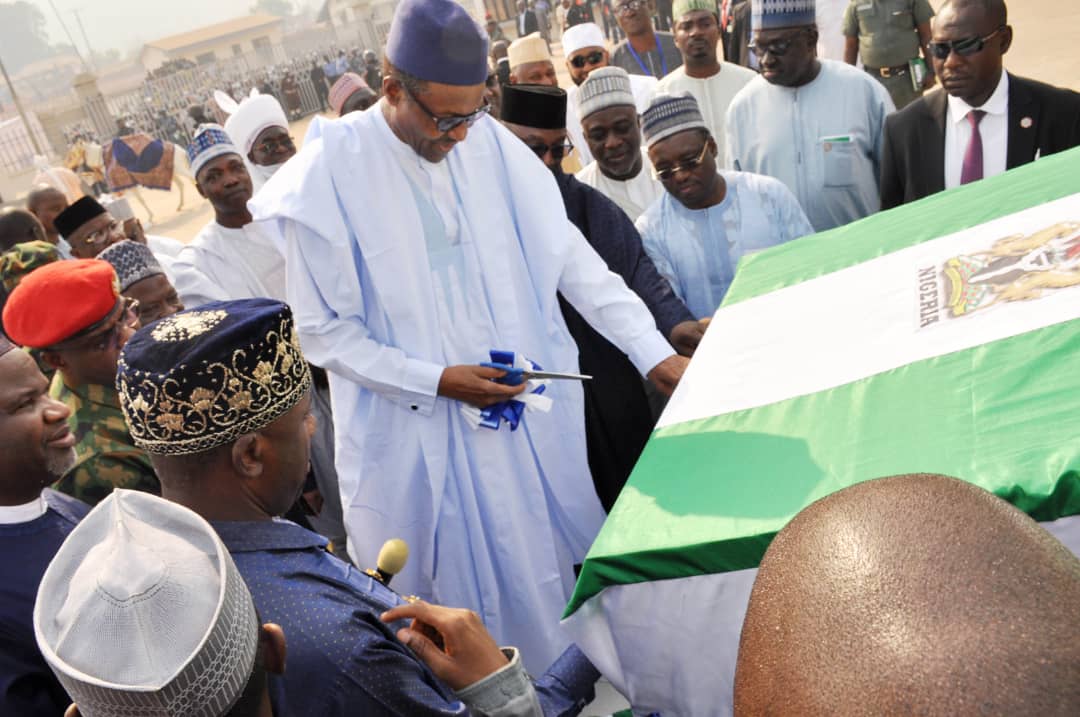President Muhammadu Buhari recently commissioned the multi billion
Naira Baro Port in Niger State.
At the commissioning The President said if successive governments at
the federal level had implemented the comprehensive master plan for
the development of the Nigerian Inland Waterways across 28 states of
the country initiated by the Petroleum Trust Fund (PTF), under his
watch, the recurring accidents experienced on Nigeria roads could have
been avoided.
The president promised to reactivate Minna/Baro standard gauge;
complete Lagos/Kano railway line which would pass through Minna and
Minna/Abuja light rail.
Buhari also said he would expedite action on the completion of
Bida/Lapai/Lambata; Minna/Suleja dual carriage way; Mokwa/Jebba road
amongst others.
He also pledged early completion of Zungeru Hydro power
Also speaking, Chairman of the Nigerian Inland Water Ways (NIWA),
Olorunnimbe Mamora said the Port has quay length of 150 Metres, Cargo
Stacking Yard of 7,000 square meters, a Transit Shed of 3,600 square
meters and estimated capacity of 5,000 TEU at a time.
He said some of the installed machinery are the 84-ton mobile harbour
carne, one reach stacker, and three forklifts of varying capacities.
Other facilities according to him, include the administrative block,
water treatment plant, power generating plant and staff quarters among
others.
A statement by Tayo Fadile the General Manager Corporate Affairs of
Inland Water Ways Authority, The Baro River Port was built by Chinese
firm (CGCC Global Project Nigeria Limited) at total cost of six
billion naira, equipped with a Mobile Harbour Crane, Transit shed,
Administrative block, fire hydrant system, water treatment plant,Reach
stacker, 100KVA power generating set, and three numbers forklifts of
various tonnages.
He said It is one of the River Ports built to support the dredging of
Lower River Niger project. Onitsha River Port has already been
rehabilitated while Oguta and Lokoja River Ports are nearing
completion.
The Baro river port is expected to create at least two thousand direct
jobs and hundreds of thousands indirect jobs. It will help keep off
the road several heavy duty trailers and trucks, thereby extending the
life span of our roads.
In the past, during the colonial era, Baro use to have a thriving
River Port and a railway line which were used for evacuation of farm
produce and mineral resources, it was a trading point between Nigeria
and neighboring countries through the Inland Waterways transportation
mode. here is hope that the old Rail lines used in the colonial days
will be revived and the road network linking the port is already being
upgraded.
